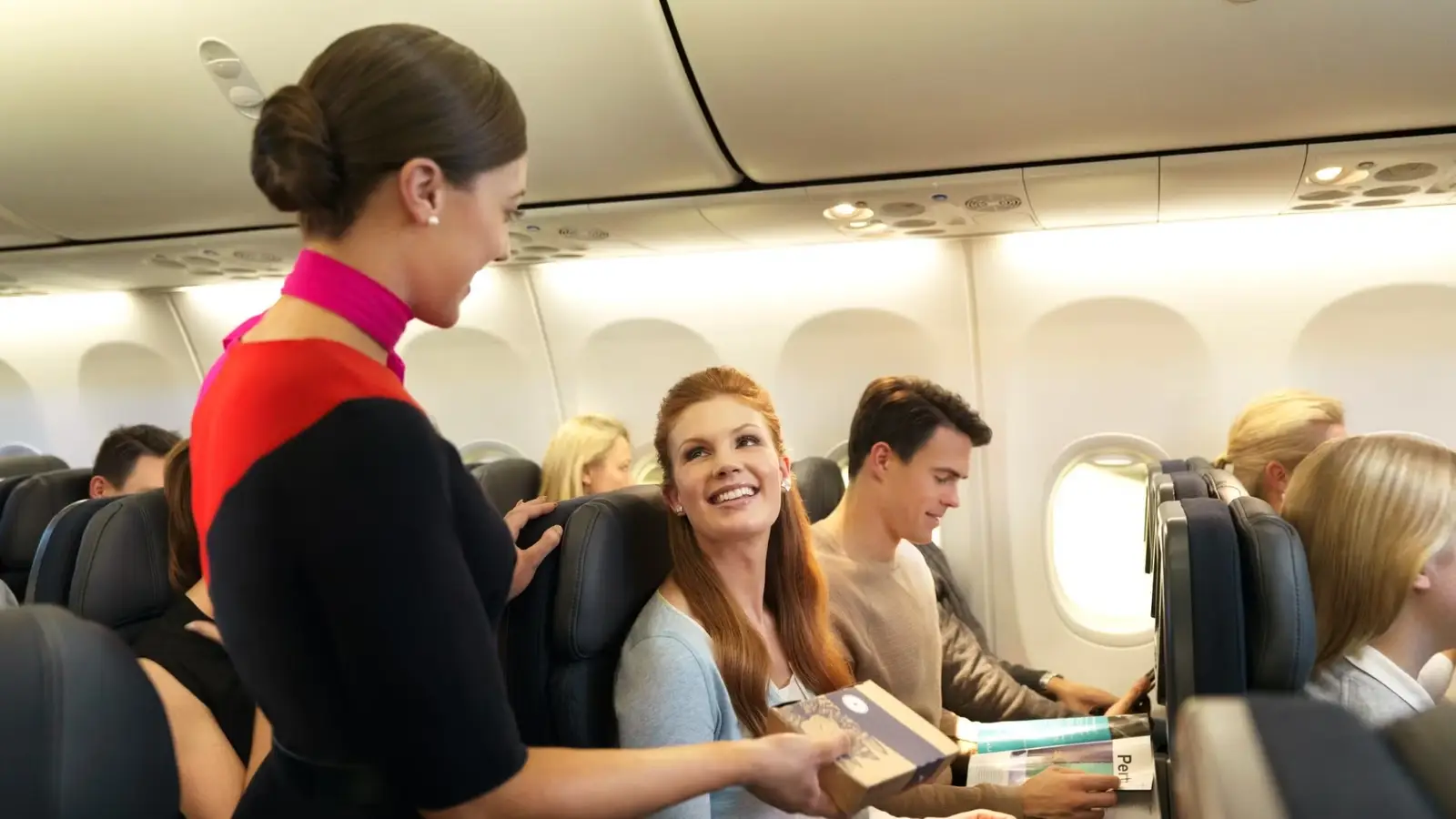
A smile and a nod are all that flight attendants get from most passengers when they board an aircraft. However, during this interaction, which usually takes less than a few seconds, the flight attendant will make a mental log of the passenger. The information they keep in their head is essential for ensuring that everybody has a safe and comfortable flight.
In this article, we will take a closer look at why flight attendants pay so much attention and create this mental log during boarding, and learn what judgments flight attendants look to make. It is important to note that flight attendants aren’t being judgmental at this stage of the flight, and any assessments they make are to improve the experience and safety of all passengers.
Ensuring Passenger Safety
When you board an aircraft, the cabin crew might make quick judgments about who you are, but this isn’t a case of them being nosy. Indeed, cabin creware “not judging you for it,” as Emilia Ryan, speaking with Reader’s Digest, explained. Rather, these assessments are all about ensuring everyone is safe and comfortable during the flight. Duygu Eren Tosya, chief of Turkish Airlines cabin crew, told Travel + Leisure about how this provides safety and comfort:
“They are identifying passengers who may be able to assist in an emergency, as well as passengers who may need additional help in an emergency situation, such as an elderly or injured person.”
Janice Bridger, a flight attendant, shared her experience in this area on Quora: “I watch for disabilities that may disqualify someone from sitting in the exit row. They need to be able to physically lift a heavy hatch (up to 60 lbs) or open a heavy door (several hundred pounds).” Likewise, inexperienced passengers might need extra help in an emergency. On the same Quora forum, flight attendant Kimberly Sullivan wrote:
“We can detect if they are experienced customers by the way they board the plane. If they are holding up the aisle and have tunnel vision, we know they are rookie travelers.”
Flight attendants will also be aware of their pregnant passengers. It’s usually considered healthy to continue flying until the 36-week mark, and you should check with a doctor if you are past that stage. Regardless, the flight attendant should take action to enhance the comfort and safety of their heavily pregnant passengers. Suitable measures can include providing an extra legroom seat that is close to the bathroom. An aisle seat will also likely be arranged for pregnant passengers.
Shoes & Clothing
A significant safety risk good flight attendants will spot immediately is whether your shoes and clothing could make it harder for you to use the aircraft’s safety equipment. As such, it is generally advisable for passengers to choose sensible footwear while they are flying so that they aren’t adding to a flight attendant’s stress if they have to quickly evacuate the aircraft. Amy Caris, JSXdirector of in-flight and an experienced flight attendant, told Reader’s Digest:
“I always look at what kind of shoes a customer is wearing to determine whether they can run quickly and easily in them. If I see someone wearing high heels during boarding, I can make a note to add in an emergency command about removing them if the need arises.”
Certain clothes can also make it hard to evacuate, and flight attendants will need to think about how they can adapt exit procedures to accommodate the impractically dressed. Another flight attendant, Ryan, told Reader’s Digest that “I’m not a prude, but I always notice when passengers are in miniskirts or very short shorts because they will have a difficult time evacuating.” As with high heels, it’s worth keeping such clothing in your bag and selecting something more practical and comfortable.
Shoes and clothing can also impact the comfort of your flight, and great flight attendants will worry if your choice of clothing will make it hard for you to enjoy the experience that they have worked hard to create. With open-toe high heels, sandals, and flip-flops, they might be concerned that you will get dirt from the floor on your feet. Similarly, airline seats can be dirty, and flight attendants could fear for your health if your clothing exposes skin to the seats.
If You Can Help In An Emergency
Flight attendants also have to be worried about the prospect of an attack on their flight. Due to the frequency of flights they take, the risk of such occurrences increases significantly over time, although they remain extremely rare. Bridger from Quora said that she picks out certain passengers in her mind who could help her:
“I consider this person a resource for me. In the event of an attack on the flight or on me, these are my ‘go-to’ people. If a situation looks like it could develop, I’ll privately and discreetly ask one of these people if they would be willing to help us if necessary. Help might involve subduing or restraining an unruly passenger.”
Flight attendants also tend to keep an eye out for medical professionals in case somebody falls ill during a flight. They will look for certain signs of this while you are boarding, but will always appreciate being told directly early in the flight. Such measures prevent precious minutes from being wasted asking over the intercom if anyone is a doctor in the case of a medical emergency.
For similar reasons, flight attendants will also look for passengers who have experience as pilots, flight engineers, or members of the cabin crew. There are examples of off-duty aviation staff saving lives during air disasters. For example, in 1989, United Airlines flight 232 experienced a catastrophic failure while in the air, and it had to crash-land in Sioux City, Iowa. However, the situation could have been so much worse.
After the failure, Dennis Fitch, another United Airlines Captain and DC-10 flight instructor who happened to be a passenger aboard, jumped at the opportunity to help on the flight deck. He assisted the captain in navigating the aircraft’s controls until the crash landing. 112 people died in the accident, but Fitch’s actions are understood to have made a significant contribution to saving the lives of the 184 people who walked away from the accident.
Whether You Are Going To Cause Trouble
Flight attendants will immediately be concerned if they think you are intoxicated or can smell alcohol on your breath. Every flight attendant will have experience with a drunk passenger becoming aggressive and disruptive, and they won’t hesitate to remove such passengers from the plane before takeoff so that they don’t become a problem later on. Furthermore, flight attendants have to take alcohol from passengers who try to bring it onto the plane for their own consumption.
On the other hand, good behavior and aircraft etiquette could make flight attendants feel more motivated to be generous and ensure you have an amazing experience. This all starts with being friendly when flight attendants welcome you onto an aircraft, and extends to being polite when asking for things on the flight. You never know, it could be your lucky day, and you might even get an extra free drink or snack.
Flight attendants observing the character of passengers is also for their own safety. Amy Caris told Reader’s Digest about how the poor behavior of couples towards each other could indicate something more sinister that flight attendants have a professional duty to report. She said that “human traffickers have used flights as a means to facilitate trafficking, and observing signs and indicators could save someone’s life.”
Your Baggage
The final noteworthy thing that cabin crew look for when you are boarding the aircraft is any bags that you are taking aboard. This ensures that everything can be stowed quickly and that the airline’s rules are followed to the letter. They will look to identify passengers who are struggling with their bags, who may need help getting them into the overhead bins. Such measures guarantee that boarding happens as quickly as possible.



